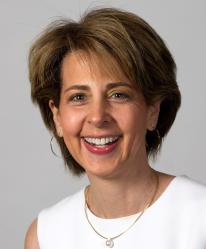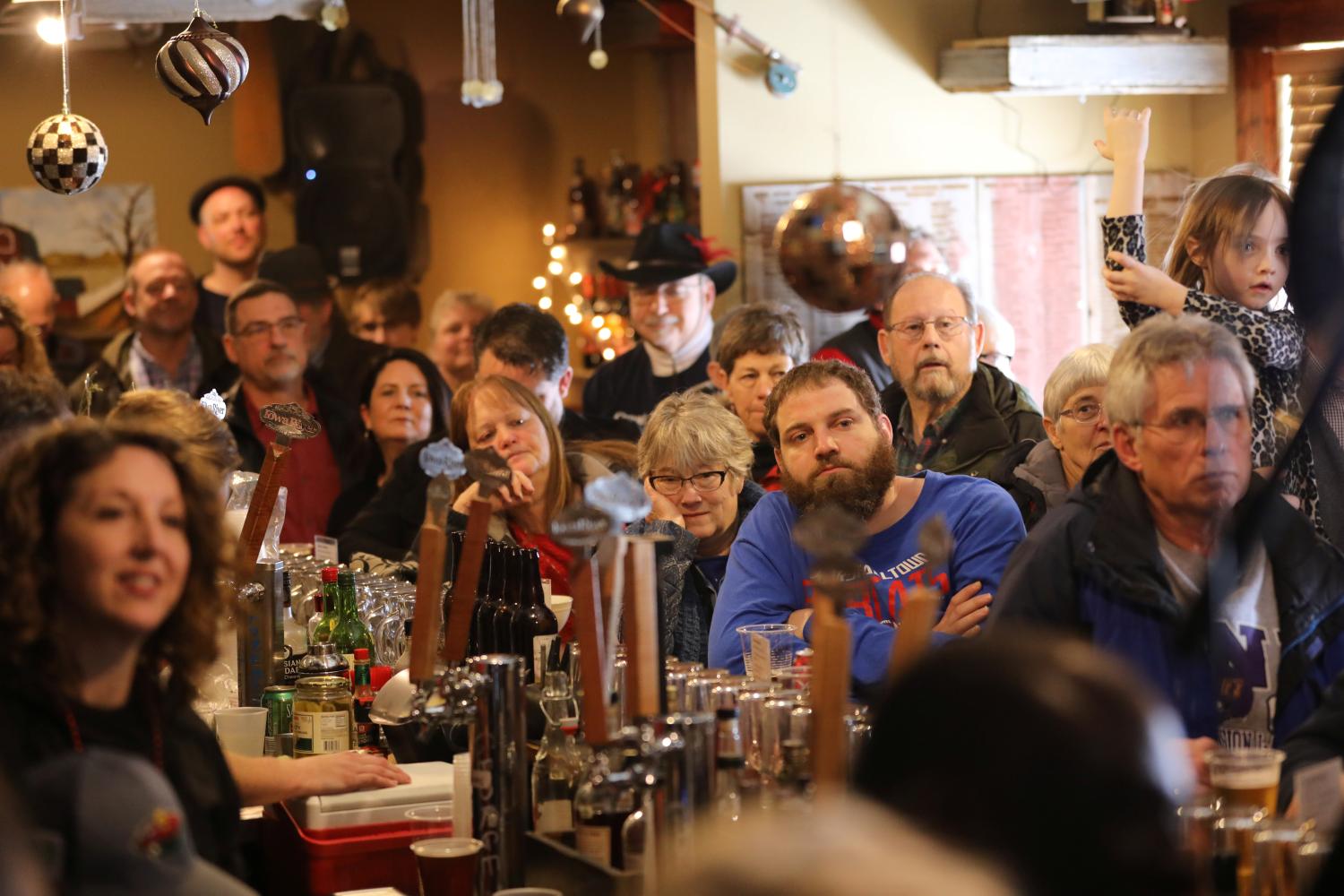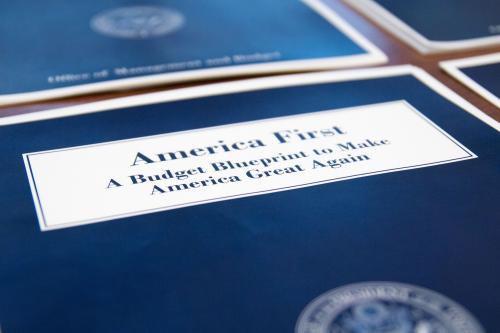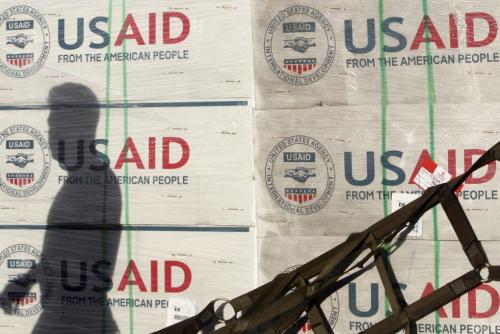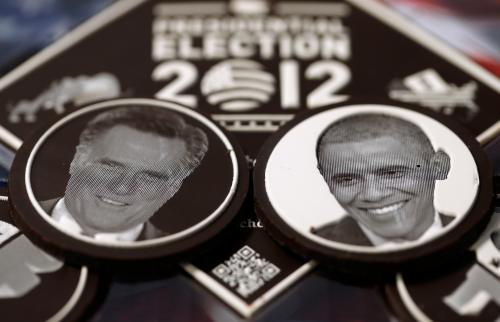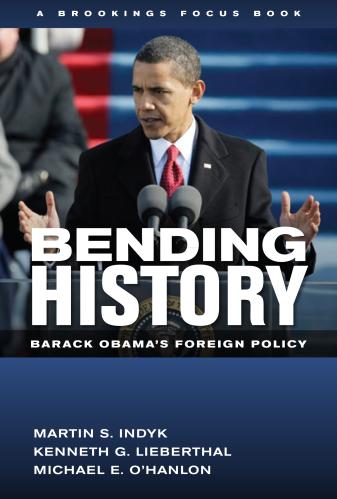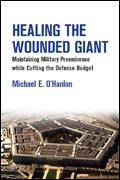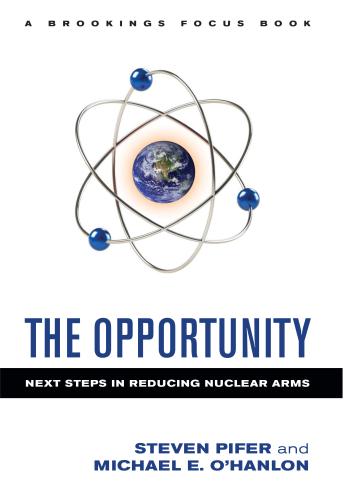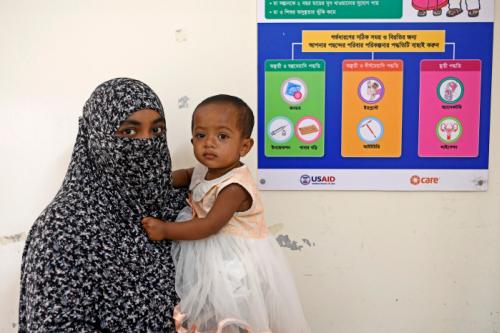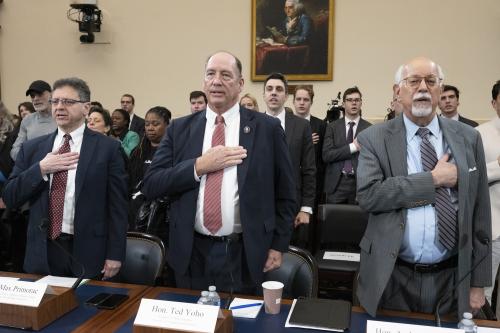The following is one of eight briefs commissioned for the 16th annual Brookings Blum Roundtable, “2020 and beyond: Maintaining the bipartisan narrative on US global development.”
Dear Candidates:
You’re running for Congress or to be America’s Commander in Chief—congratulations! And whether you’re a new candidate or running for reelection—Republican, Democrat, or Independent—I look forward to working with you. It’s a complex and competitive global arena, with no shortage of challenges and opportunities for our country. The truth is that you can make a consequential difference in the debate about America’s role in the world.
Perhaps when you sit down with your tested team of pollsters and political consultants, you might hear a familiar refrain: “Talk more about Dayton, less about Dakar.” It’s often too easy to gloss over foreign policy, because conventional wisdom suggests that it’s not a kitchen table issue. But if you do so, you’ll be missing a powerful opportunity to connect with voters of all stripes.
I know, because over the past several years, my colleagues and I have traveled all over the country—district by district, town by town—listening to voters. I have met a diverse and engaged electorate in red, blue, and purple America that is not only hungry to talk about foreign policy, but is also hungry for an America engaged on the global stage.
The opportunity
There is no doubt that populist winds are running through America, just as they are worldwide—even isolationist pockets on the left and the right. But poll after poll shows the vast majority of Americans understand that retreat from the globe is dangerous—that we live in a world where infectious diseases recognize no borders and the ripples from protracted conflicts can eventually reach our doorsteps. From the global refugee crisis to growing competition with China, these global issues affect us here at home.
The key to inspiring our fellow citizens is to show them the good return on our investment from America’s global leadership. This is your opportunity. And it’s not hard to do.
Our travels took us from Bismarck to Phoenix, Kalamazoo to Scranton, Charlotte to Miami, and beyond, in conversation after conversation about how leading globally matters locally. We met with farmers and business owners, veterans and military families, faith and community leaders. We heard their stories—about how investments in diplomacy and global development matter here at home.
It couldn’t have been more clear for these citizens: Kitchen table issues include how America competes in the world economically and how investments overseas keep us safe at home.
Just listen
As we head towards the 2020 elections, it’s worth looking back at the 2016 exit polls, where four out of five general election voters said that foreign policy was either “extremely important” or “very important” to their vote—regardless of which presidential candidate they supported. Voters will want to hear your views on foreign policy again.
Don’t shy away from sharing your vision. Americans do not want to retreat from the world, but they also want us to invest in effective foreign policy programs that keep us safe, improve our economy, and demonstrate our values.
I invite you to listen to what we heard on our road trip—and you will hear winning messages for the campaign trail that I’m certain will inspire the vast majority of our fellow citizens.
“It’s the economy, stupid”
Clearly, there is a serious debate on trade and tariffs when it comes to engagement in the world and its impact on our economy. While I’ll leave the details of these policies to others, there are some important lessons about the economy to share from my travels.
We hosted thousands of local CEOs, small- and medium-sized business employees, and chamber presidents who were passionate about talking about America’s role in the world. For them, global engagement is inextricably linked to our economic prosperity:
- In a Kalamazoo forum at Western Michigan University, the head of the regional chamber of commerce talked about the business community’s reality saying that “95 percent of the world’s consumers live outside the United States” and that one in six jobs in Michigan is tied to the global marketplace.
- In central Texas, a local business leader told a forum that America has to keep investing overseas for Texas businesses to stay competitive, noting that U.S. leadership “matters more than ever to our local communities.”
These stories of how global development delivers for our economy come not only from the business community, but also from members of Congress from both parties.
- While in north-central Florida with Congressman Ted Yoho (R-FL), a member of the Freedom caucus, he told his constituents that investments in diplomacy and development matter for the “millions of Florida jobs tied to exports.”
- And from a member of the Progressive caucus in Scranton, Matt Cartwright (D-PA) shared a similar message to a packed house: America’s civilian tools overseas are critical for the “economic future here in northeastern Pennsylvania.”
Some of the most supportive voices that connect our economy to the global marketplace belong to farmers. In my visits with farmers in Appleton, Wisconsin and Des Moines, Iowa—along with my colleagues in Nebraska, Missouri, and Kansas—they immediately link their livelihood with foreign policy as a critical “bread and butter” economic issue. As one farmer said, “I know that most of my customers are outside of the U.S.”
Over the last decade, U.S. agricultural exports to developing countries have increased by 63 percent to $83 billion per year. It was not lost on me that they were unabashedly opposed to cuts to the State Department budget and supporting our global development programs because farmers believe you “never eat your seed corn.”
The great power competition
When it comes to the broader economic debate, a big motivator for voters is the recognition that we are not the only economic player around the world. I remember a visit to Macomb County, Michigan, where I heard from a father of four who was deeply concerned about the growing competition with China. For him, as soon as he learned that 11 of our top 15 export markets used to be beneficiaries of U.S. foreign assistance—he called out China for copying our playbook and America for pulling back, stating “that scares the **** out of me.”
Competition with China is a topic that emerges everywhere. I share the facts: Over the past five years, China has doubled its diplomatic budget and will invest over a trillion dollars through its Belt and Road Initiative—estimated to be seven times the size of the Marshall Plan in real dollars. In Africa alone, China’s development investments have increased by more than 520 percent over the last 15 years. The result: American exports to Africa slumped to a new 10-year low in 2016, while China’s trade with Africa has surged to nearly three times that of the U.S.
Voters don’t want us to sit idle, and are heartened to learn about bipartisan policy initiatives in global economic development that create a fairer playing field for American exports abroad, including a doubling of America’s development financing capacity, the women’s economic empowerment initiative, a plan to electrify Africa, addressing food insecurity, and many more.
As a candidate, telling the economic story of foreign policy is much more than debating tariffs. There’s a winning message that connects with your voters about international development and great power competition:
- With 95 percent of the world’s consumers outside the United States, we’re in a global competition for reaching America’s next customers and export markets.
- By investing in the developing world, we set the rules of the road and build more stable markets for American goods and services and ultimately more jobs back home. That’s good for our economy, our security, and our children’s future.
- It works when 11 of America’s top 15 export markets were once countries where we invested U.S. foreign assistance.
- If we don’t compete on the global stage, other countries like China will fill the gap and shut us out of future markets. This will cost us jobs and lower wages.
Channel the CEO of Procter & Gamble, headquartered in the Heartland of America in Cincinnati, Ohio, who spoke at a forum last year that we hosted. The CEO of the maker of iconic brands—including Crest, Pampers, and Tide—said, “In order for the U.S. to stay competitive in the world, we need to be engaged and we need to invest in promoting global stability and creating new markets—this creates positive economic outcomes locally and here at home.”
Prevent the next war
One of the greatest honors traveling the country is to visit with veterans. As a candidate, I know that is true for you as well. We’ve talked with thousands of veterans over the last year who served tour after tour in Afghanistan, Iraq, and beyond. They certainly see America’s role in the world as a “Day One” issue for any elected leader. But here again, don’t narrow your conversation just to the defense budget or the use of force.
Today, America faces protracted conflicts and crises from Iran and Syria and Yemen to Venezuela and North Korea, and other fragile and unstable arenas. America’s combatant commanders who served in all regions of the globe and scores of retired three- and four-star military officers have made it clear that “the military alone cannot keep our nation safe. Diplomacy and development are essential to combating threats before they reach our shores.” Their stories are powerful:
- Few have been as clear as former Defense Secretary Jim Mattis, who told Congress, “If you don’t fully fund the State Department, then I need to buy more ammunition.”
- Retired four-star General Gene Renuart of Colorado Springs often talks about how prior to 9/11, the U.S. had gone through a decade of hemorrhaging of State Department diplomats and USAID professionals, causing the kind of loss that “really changes the political dynamic in countries.” Without robust resources for U.S. civilian personnel, “we can almost guarantee there will be another crisis somewhere in the near horizon.”
- Multiple Army veterans of Afghanistan and Iraq from Iowa recently banded together to press their representatives on how to tackle the root causes of instability and extremism—telling how ISIS, al-Shabbab, and Boko Haram all take advantage of famine and drought.
- In the recent debate over aid to Central America, former commanders of SOUTHCOM, stated: “Cutting aid to the region will only increase the drivers and will be even more costly to deal with on our border.”
As a candidate, you will find that talking about investments in our civilian tools, alongside our military, strongly resonates with veterans and is a winning message:
- Since 9/11, our generals are the first to tell us that the threats we face do not have military solutions alone.
- If we don’t invest in our civilian tools, alongside defense, someone else will fill the void.
- Development and diplomacy tools help prevent conflicts before they emerge, reducing the likelihood of placing our men and women in uniform in harm’s way, except as a last resort.
As former Secretary of Defense Bob Gates has said, “Development is a lot cheaper than sending soldiers.” I’m confident that veterans will agree.
An issue all Americans can rally around
In every city, there’s one question I always ask: “Why are you here? What does ‘leading globally matter locally’ mean to you?” I certainly hear about our economy—as one person said, “After all, are there any corners left in this country to build another Starbucks? We have to be able to compete in the world.” I hear about our security—fears of Ebola or Zika and the nuclear standoffs with Iran and North Korea.
But mostly, citizens say “It’s the right thing to do.” They passionately talk about America as a force for good in the world. It’s very moving and it makes me proud to share the successes of how America—working in partnership with the private sector and NGOs—has made such a difference globally.
Of course, polls still show that Americans have strong misperceptions about the amount we invest in foreign assistance. For 40 years, they have estimated that it’s 20-25 percent of the federal budget when it’s actually just 1 percent. And they can be skeptical that it works, despite the fact that America has helped cut extreme poverty around the world in half over the past 25 years. But they are also pleased to learn it isn’t “their grandfather’s foreign aid” from the Cold War and there have been effective reforms that are delivering results today.
So, listen to the storytellers:
- The faith community is central. One pastor from Birmingham, Alabama opened a local forum testifying to the importance his congregation places on our country’s commitment to “save lives and cure diseases” in some of the poorest places on earth. The same is true of the nun who runs a college in Pennsylvania, the Muslim community leader in Minnesota, the pastor in Florida, and the Jewish community leader in Kansas.
- Rotarians in every community participate actively in our discussions—including a leader in Illinois who said, “When America leads, we all win.” In Georgia, Habitat for Humanity leadership said, “global development is central to demonstrating America’s values.”
Americans are proud of our diplomats, our volunteer Peace Corps, and the strength of our alliances in the world. Former Foreign Service officers often come up to me, proud to tell about their service and posts abroad.
While Americans certainly want to know that there is a return on investment for our economy and security, here is what I’ve also learned that connects:
- Be passionate about why American leadership matters to you (for example, caring about nearly 30 million people facing famine and nearly 70 million displaced from their homes).
- Connect with real circumstances in people’s lives (for example, we have to fight the opioid crisis both at home and overseas).
- Share successes like fighting HIV and AIDS that have saved the lives of 17 million people.
- Emphasize how America can’t go it alone and that alliances matter.
As the 2020 races for Congress and the presidency continue, we can try to close our eyes to the world, but the world will find us. We tried that after World War I and it didn’t work out very well.
On my last trip to Ohio, the threat of Ebola came up at a forum with several hundred business, humanitarian, veteran, and elected leaders. What many were shocked to learn is that the current outbreak in the Democratic Republic of Congo is actually the second-largest Ebola outbreak in history. It’s spreading in a region rife with conflict where heroic health workers trying to battle the pandemic are often unable to deliver help due to insecurity. The clock is ticking for the disease to spread at an even more devastating scale.
Don’t be fooled—Americans get that what happens overseas affects us here at home, both the threats and the opportunities. A recent annual survey by the Chicago Council of Global Affairs found that seven in 10 Americans believe that the U.S. has to take an active role in world affairs. Except for the period after 9/11, there’s never been a time when more Americans agreed on this issue since the Council started the survey nearly 50 years ago.
As I traveled the country, I listened very carefully to your constituents. They do not want America to pull back from the world. They get this is a dangerous option for both our economic and security interests. Be confident on the campaign trail that when searching for the kitchen table issues, foreign policy is one of them—but make the connection to how our investments, particularly in our diplomats and our development programs, matter to our lives—to our security, our economy, and our values.
Even your pollsters might be surprised by what you hear back.
Liz Schrayer
President & CEO
U.S. Global Leadership Coalition
The Brookings Institution is committed to quality, independence, and impact.
We are supported by a diverse array of funders. In line with our values and policies, each Brookings publication represents the sole views of its author(s).
